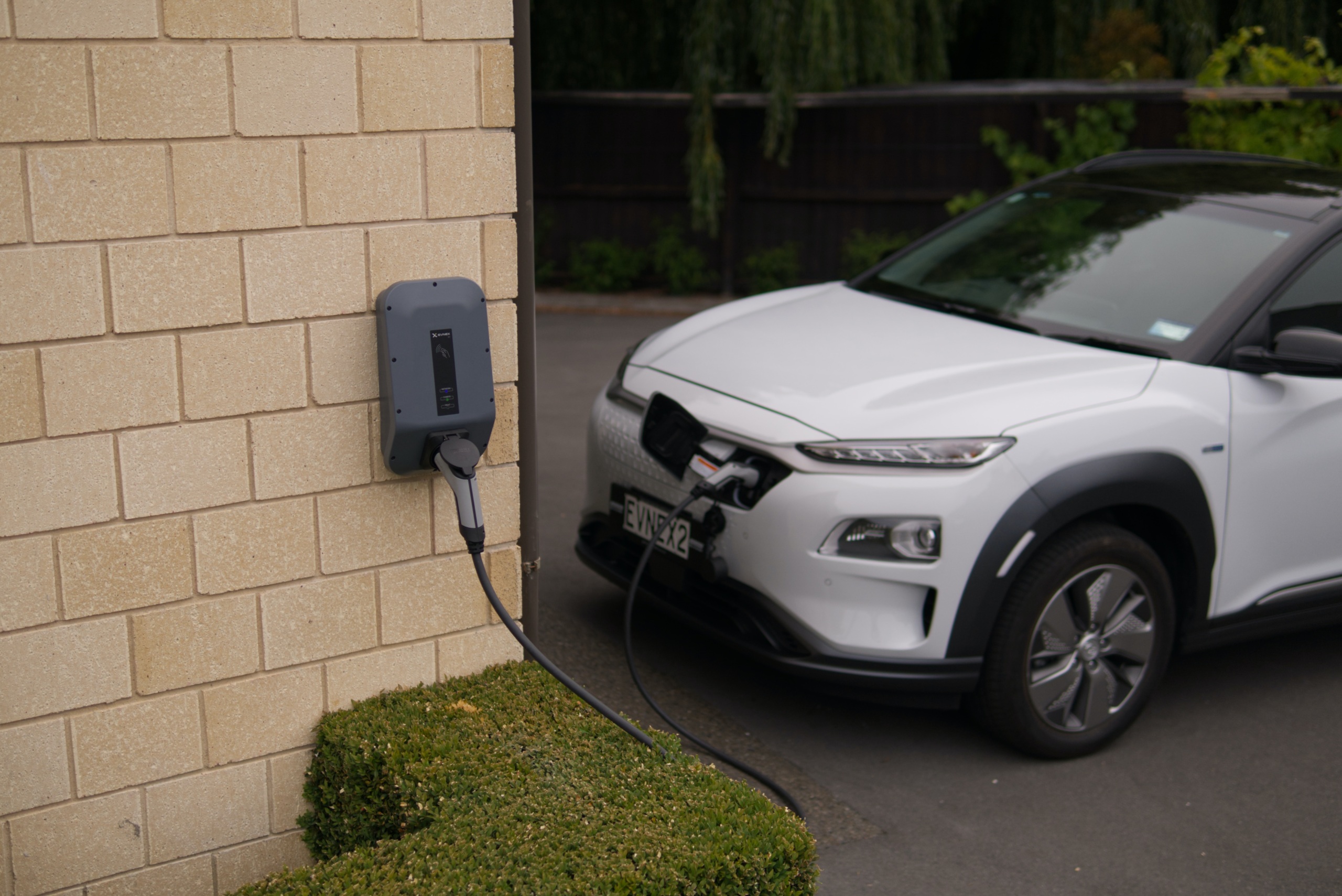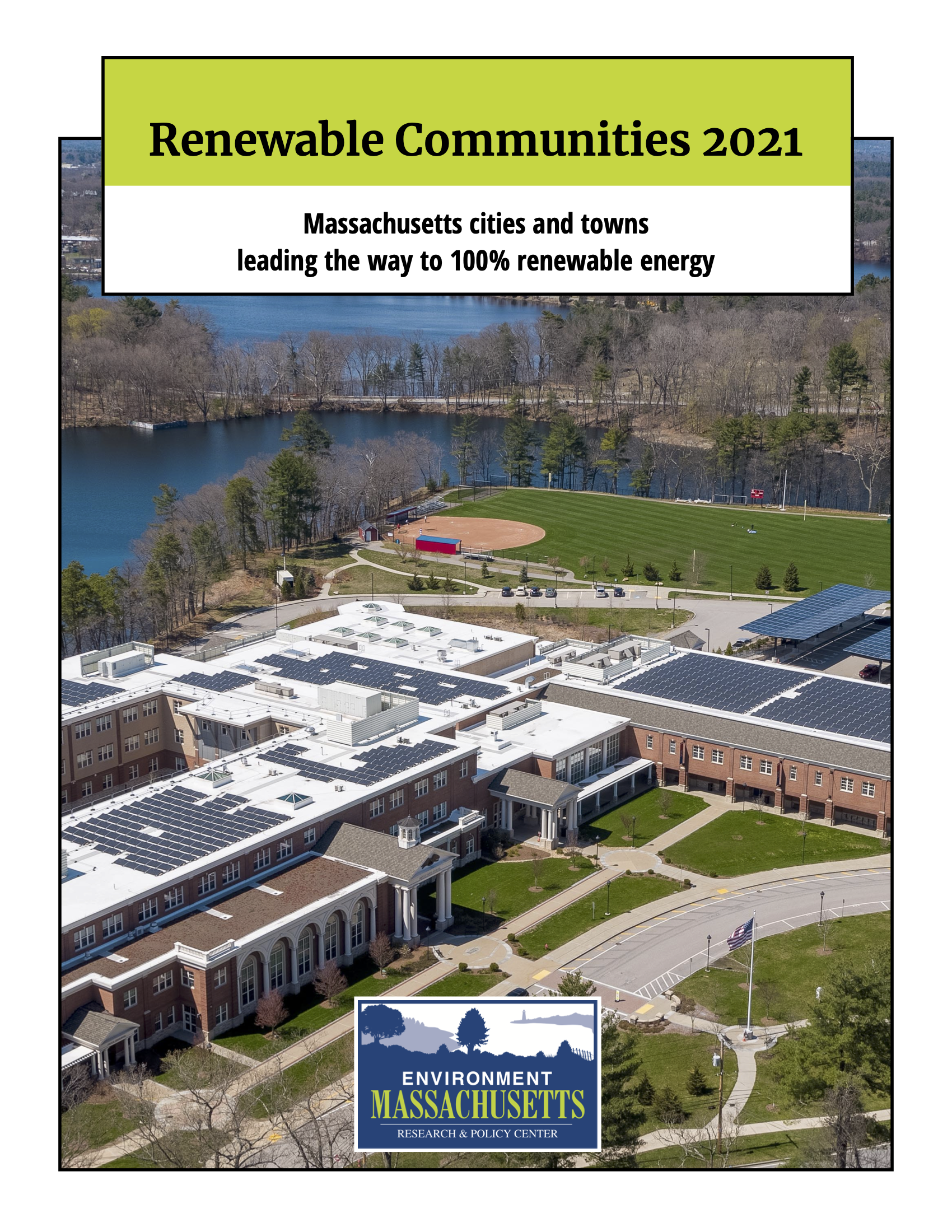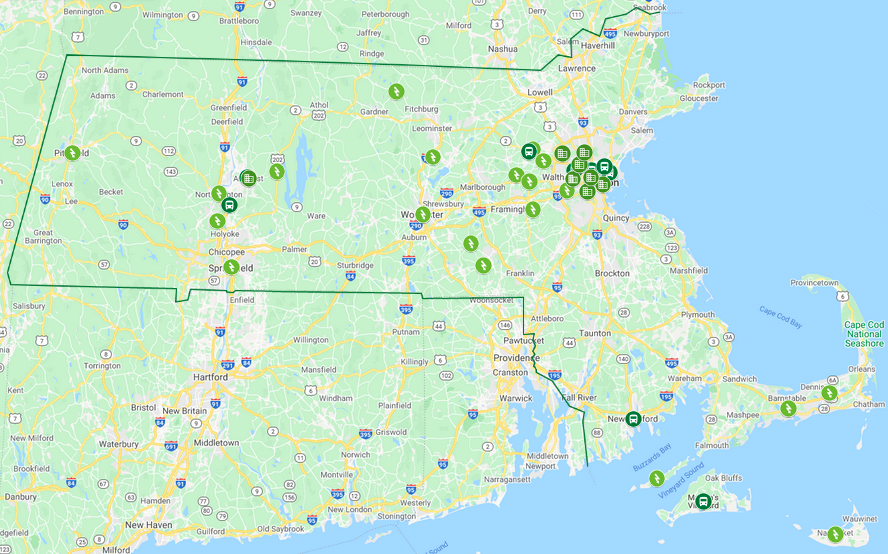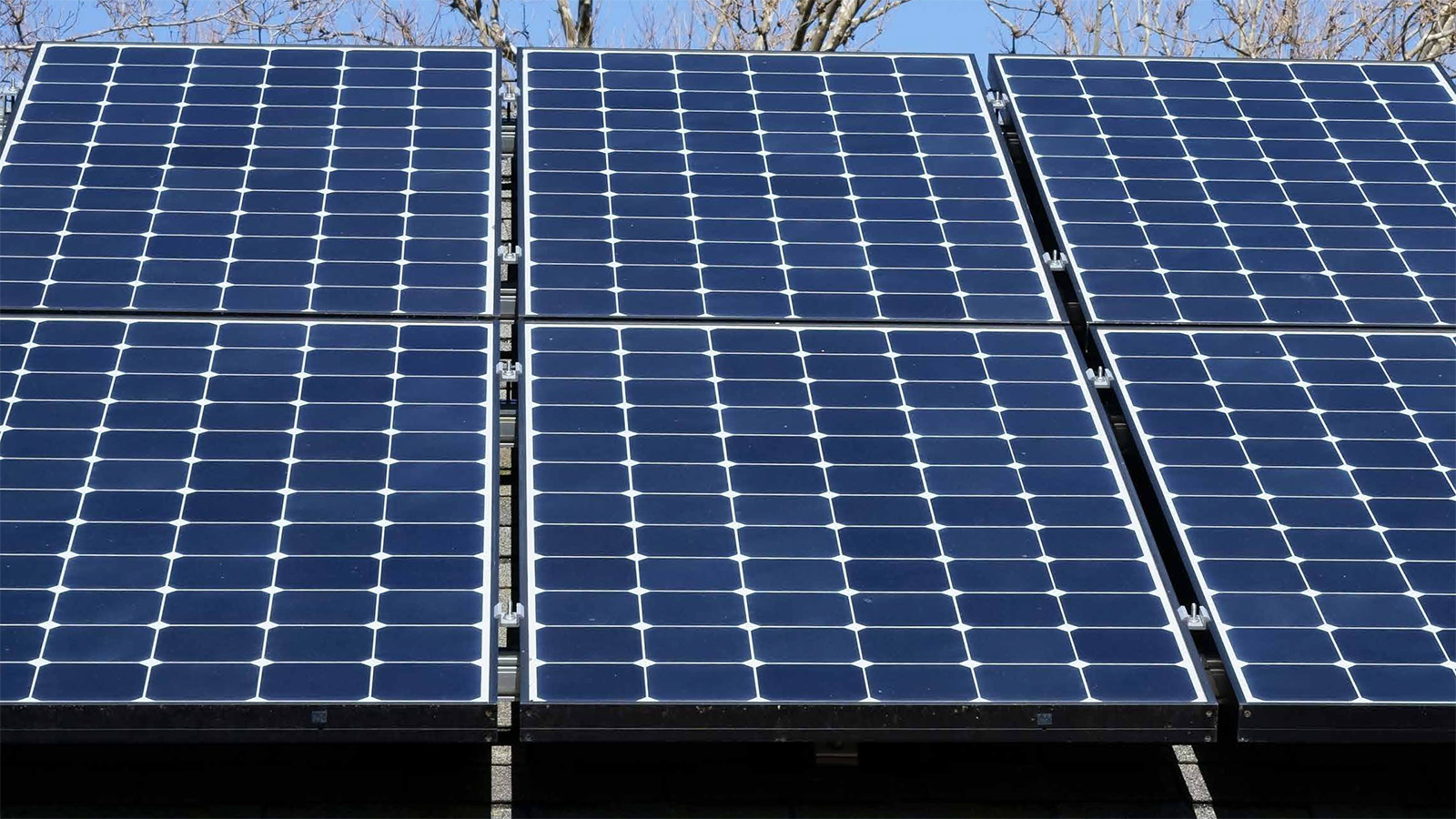
Renewable Communities 2021
Massachusetts cities and towns leading the way to 100% renewable energy
Across Massachusetts, cities and towns are leading the way to a future powered entirely by clean and renewable sources of energy. This report includes seven new case studies of cities, towns, and regional agencies that have adopted innovative programs to promote renewable electricity, energy storage, clean heating, and energy efficiency.

Downloads
Across Massachusetts, cities and towns are leading the way to a future powered entirely by clean and renewable sources of energy. Municipal officials and staff — working with citizen activists, volunteers, nonprofit organizations, and businesses — are taking action to reduce fossil fuel consumption and increase the use of renewable energy.
This is the fourth edition of Renewable Communities, previously published in 2016, 2019, and 2020. This year’s report includes seven new case studies of cities, towns, and regional agencies that have adopted innovative programs to promote renewable electricity, energy storage, clean heating, and energy efficiency.
While not an exhaustive survey of municipal clean energy action, these case studies illustrate ways in which action at the local level can accelerate Massachusetts’ progress toward 100 percent renewable energy. We hope this report will inspire more communities to follow the example of the cities and towns featured here.
Case studies from Renewable Communities 2021
- Arlington and Winchester: A community outreach campaign resulted in 224 contracts signed for the installation of clean heating systems like air source heat pumps.
- Chelsea: A proposed microgrid, managed by an innovative cloud-based system, would ensure clean, reliable power for buildings that provide key services to the community.
- CVEC (Cape and Vineyard Electric Cooperative): A coordinated approach to renewable energy deployment, bringing together dozens of municipalities and government agencies, has led to more than 50 megawatts of solar capacity built or in development.
- Mendon and Upton: A Solarize Mass Plus program offered residents a choice of six different clean energy technologies, including solar, battery storage, and air source heat pumps.
- Natick: Town officials have pursued several strategies to increase the deployment of solar on municipal buildings and on homes.
- Springfield: A 4.7-megawatt community solar array, built on a former landfill, is providing affordable electricity to hundreds of low-income residents.
- Worcester: The city’s Community Choice Aggregation Program is providing residents with a higher percentage of renewable electricity from sources in New England.
View a map of the case studies from Renewable Communities 2021 as well as cities and towns featured in the 2019 and 2020 editions of the report.

Case studies from the 2020 edition of Renewable Communities
- Belmont: The Belmont Drives Electric program has helped make Belmont one of the top communities in the state for electric vehicle purchases by residents.
- Boston: An executive order requires new municipal buildings to be built to a “zero net carbon” standard.
- Brookline: A bylaw would have required new buildings to be all-electric by prohibiting the installation of oil and gas heating.
- Cambridge: The King Open/Cambridge Street Upper Schools Complex is the first fossil-fuel-free school building in Massachusetts.
- Cape Cod Regional Transit Authority: Three solar canopies, with a total of 900 panels, are projected to meet 93% of the electricity demand at the Hyannis Transportation Center.
- Chelsea: The Silver Line 3–Chelsea route provides a faster, more convenient transit connection to East Boston, the Seaport, and South Station.
- Concord: A climate plan outlines strategies to achieve 100% carbon-free electricity by 2030.
- Holyoke: A battery storage system, paired with a solar installation, is helping clean up the electricity supply and reduce energy costs for residents.
- Nantucket: Town officials and the electric utility are pursuing a range of strategies to reduce peak load, promote resiliency, and increase the generation of renewable electricity.
- Somerville: The Winter Hill in Motion initiative has improved travel along Broadway, one of the city’s busiest streets, with dedicated bus lanes.
Case studies from the 2019 edition of Renewable Communities
- Amherst: The Net Zero Buildings Bylaw requires new and renovated municipal buildings to be powered and heated entirely with renewable energy.
- Boston: The Carbon Free Boston report identifies pathways to reach the city’s goal of carbon neutrality by 2050.
- Cambridge: The Cycling Safety Ordinance requires streets undergoing significant roadwork to include protected bike lanes in their design if they are part of the city’s priority bicycle route network.
- Cape Light Compact: The Cape Light Compact offers energy efficiency and renewable electricity programs to residents, businesses, and municipalities on Cape Cod and Martha’s Vineyard.
- Concord, Amherst, and Cambridge: A pilot program demonstrated the viability of electric school buses to transport students to and from school without harmful emissions.
- Everett and Arlington: Bus-only lanes on major roads have decreased travel time and delays for transit riders, encouraging residents to commute by bus instead of driving.
- Gosnold: A solar microgrid, one of the first community-scale microgrids in the United States, is providing more than 50% of the electricity used on the island of Cuttyhunk during the peak summer season.
- Lexington: Two new school buildings will be powered entirely with solar panels and heated with air source heat pumps and a geothermal system.
- Lincoln, Sudbury, and Wayland: During a Solarize Mass Plus campaign, dozens of residents installed solar photovoltaic and solar hot water systems to provide their homes with renewable electricity and heating.
- Martha’s Vineyard Transit Authority: The Martha’s Vineyard Transit Authority has introduced 12 electric buses into its fleet and plans to replace its remaining diesel buses with electric models.
- New Bedford: More than 25% of the city’s passenger fleet has been converted to electric vehicles, believed to be the highest percentage of electric vehicles in any municipal fleet in Massachusetts.
- Newton: The Newton Power Choice program offers residents and businesses a default level of 60% renewable electricity, higher than any other municipal aggregation program in the Commonwealth.
- Northampton, Amherst, and Pelham: Local leaders are exploring a Community Choice Energy PLUS program that would provide residents and businesses with a higher percentage of renewable electricity while investing in local projects to reduce emissions.
- Pioneer Valley: The ValleyBike Share program offers an affordable and green alternative transportation network, with more than 500 bicycles available in six communities.
- Pittsfield: Leaders are studying the implementation of a microgrid in the downtown business district, which could combine solar installations with battery storage units and energy management systems.
- Somerville: The Climate Forward plan lays out a series of actions that can be implemented over the next 5–10 years to curb emissions from buildings, transportation, and electricity.
- Sterling and Ashburnham: Municipal utilities have installed battery storage systems to reduce energy costs, provide backup power to critical facilities, and facilitate the installation of more solar electricity generation.
- Watertown: An ordinance requires new commercial buildings greater than 10,000 square feet or residential buildings with more than 10 units to be built with rooftop solar panels.
- Worcester: An 8.1-megawatt municipal solar installation on a capped landfill generates enough electricity to power 1,340 homes annually.
Topics
Find Out More


Solar panels: How federal tax credits can help you pay for them

Recording of Rooftop Solar on the Rise webinar

